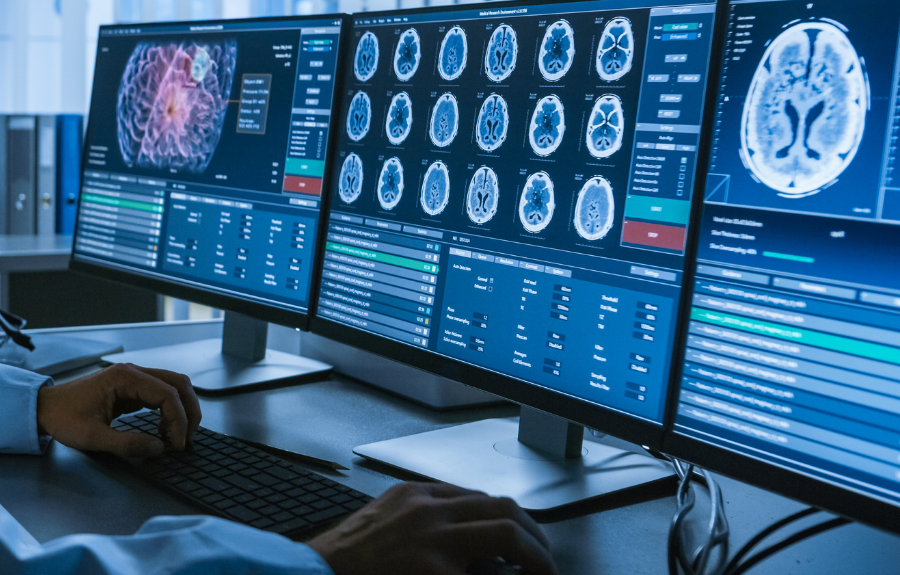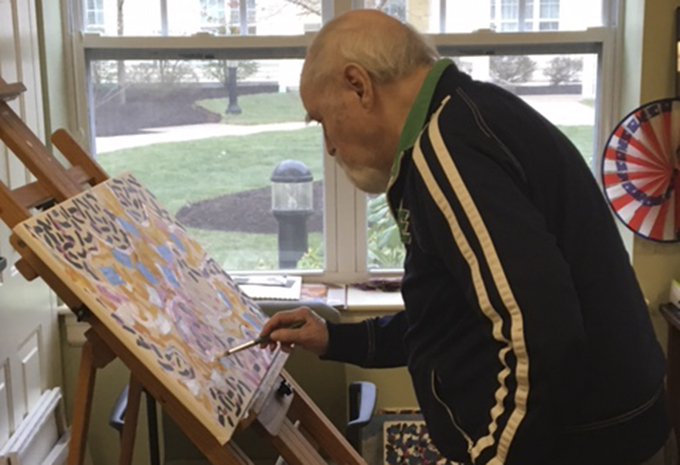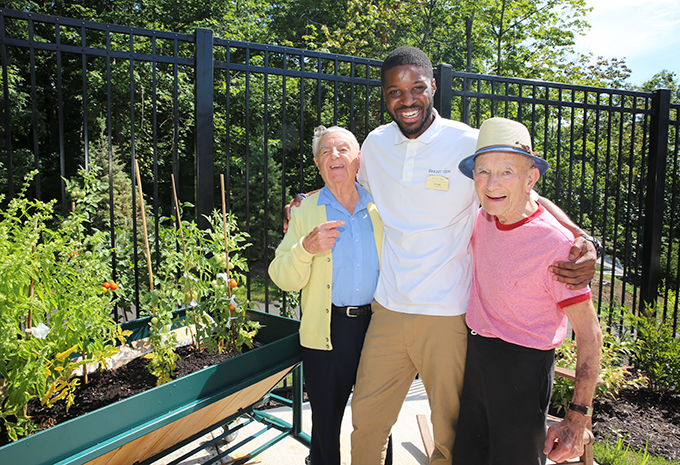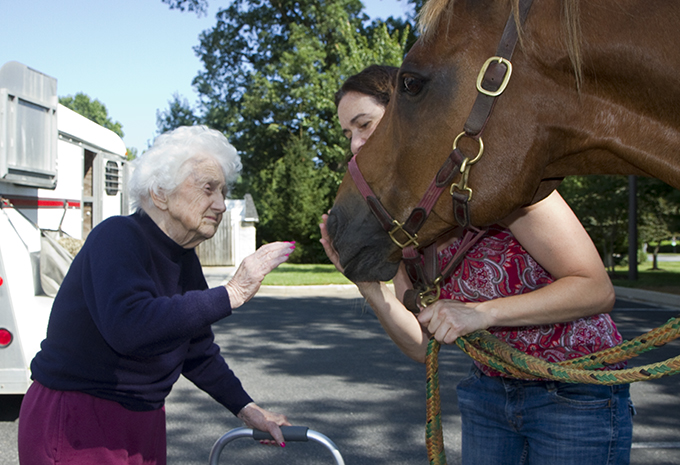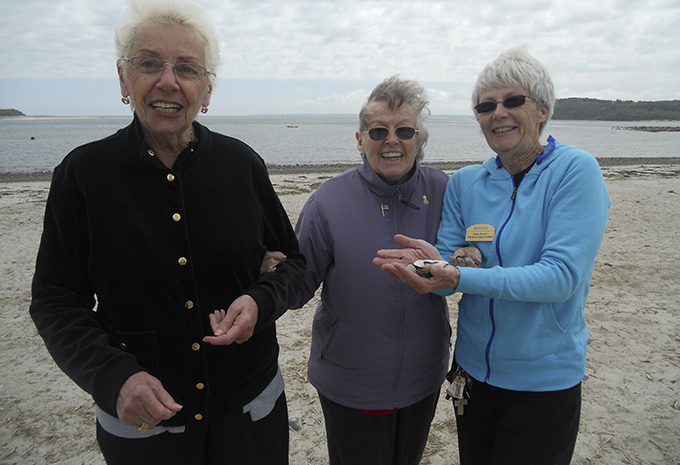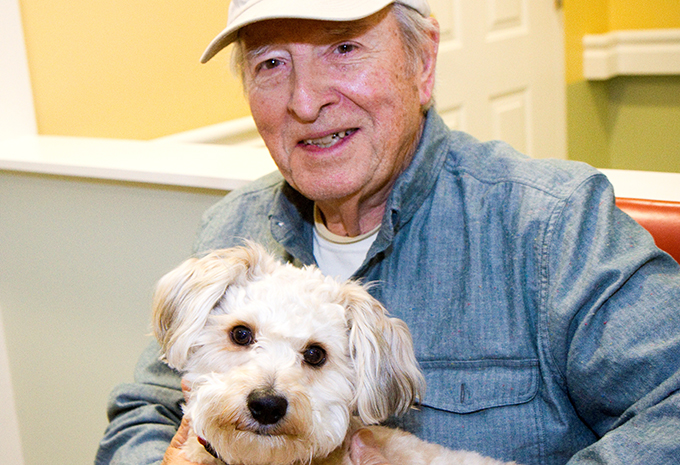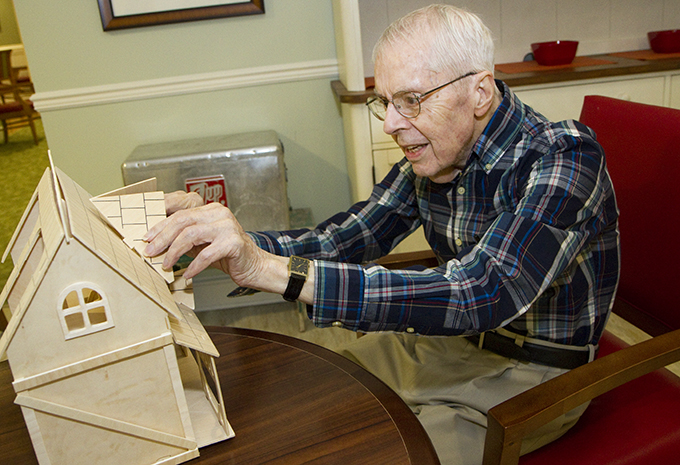Written by Cole Smith, Corporate Director of Dementia Care
Would you want to know if you would develop Alzheimer’s disease?
When I first thought about this question, my immediate response was “no.” Dementia is an irreversible condition, and a dementia diagnosis carries a high emotional burden for individuals and their loved ones. I wouldn’t want to know that this future was in store for me. I would wonder if misplacing my keys was a moment of forgetfulness or the first step down a path I was destined to travel.
I would gather that many people think that way. However, after reading about recent technology and dementia research developments, a new perspective crossed my mind.
Recent research from the UK published in the Journal of the American Medicine Association found that AI and machine learning can accurately predict if people who currently attend memory clinics will develop dementia within two years. Those in the study already had problems with memory or brain function without an official dementia diagnosis, but this is just the start of what AI and further advancements may be able to learn and tell us about our risk for developing dementia.
Down the road, if machine learning and technology could take the average 40 or 50-year-old and accurately predict whether that person would develop dementia later in life, I think it could be beneficial to have that information.
Although there remains no cure or proven way to prevent dementia, there are still steps you can take to minimize disease progression. Changing your diet or exercise patterns is an excellent place to start. As the saying goes, if it’s good for your heart, it’s good for your brain. Taking up a simple cardiovascular activity like walking is key to staying active longer. Eating a lower-sodium, heart-healthy diet featuring lots of fruits and vegetables also will help.
Another step you could take when faced with a future dementia diagnosis is to help your loved ones with practical caregiving matters. Talk to your loved ones now about your wishes while you can articulate them well. Discuss who would provide most of the care, where you would like to live, etc. Look at your finances and talk to a financial advisor or elder attorney to help establish the means to fund your future care needs. Although these discussions can be emotional and challenging to start, you will be giving your loved ones such peace of mind. Knowing you played a significant role in your caregiving decision process will ease much of the emotional burden they will carry.
Finally, this advanced diagnosis may prompt you to experience life in a way you’ve always imagined. Maybe you’ve always wanted to travel to a particular destination – make plans to go in the near future. Have you always wanted to reconcile and reconnect with a family member or friend? Consider reaching out to make amends.
Advancements in dementia diagnosis and treatment are coming down the pipeline every day. We don’t know what the future of dementia diagnosis or treatment will bring. Still, everyone can take time to consider the practicalities of your end-of-life care or what quality of life means to you. Your future can be purposeful and beautiful regardless of a dementia diagnosis.
Brightview Senior Living builds, owns, and operates award-winning vibrant senior living communities in eight states along the East Coast: Connecticut, Maryland, Massachusetts, New Jersey, New York, Pennsylvania, Rhode Island, and Virginia. We offer senior Independent Living, Assisted Living, Enhanced Care, and Wellspring Village™, a specialized neighborhood for people living with Alzheimer's disease and other forms of dementia. Schedule a personal visit to experience our communities firsthand.

